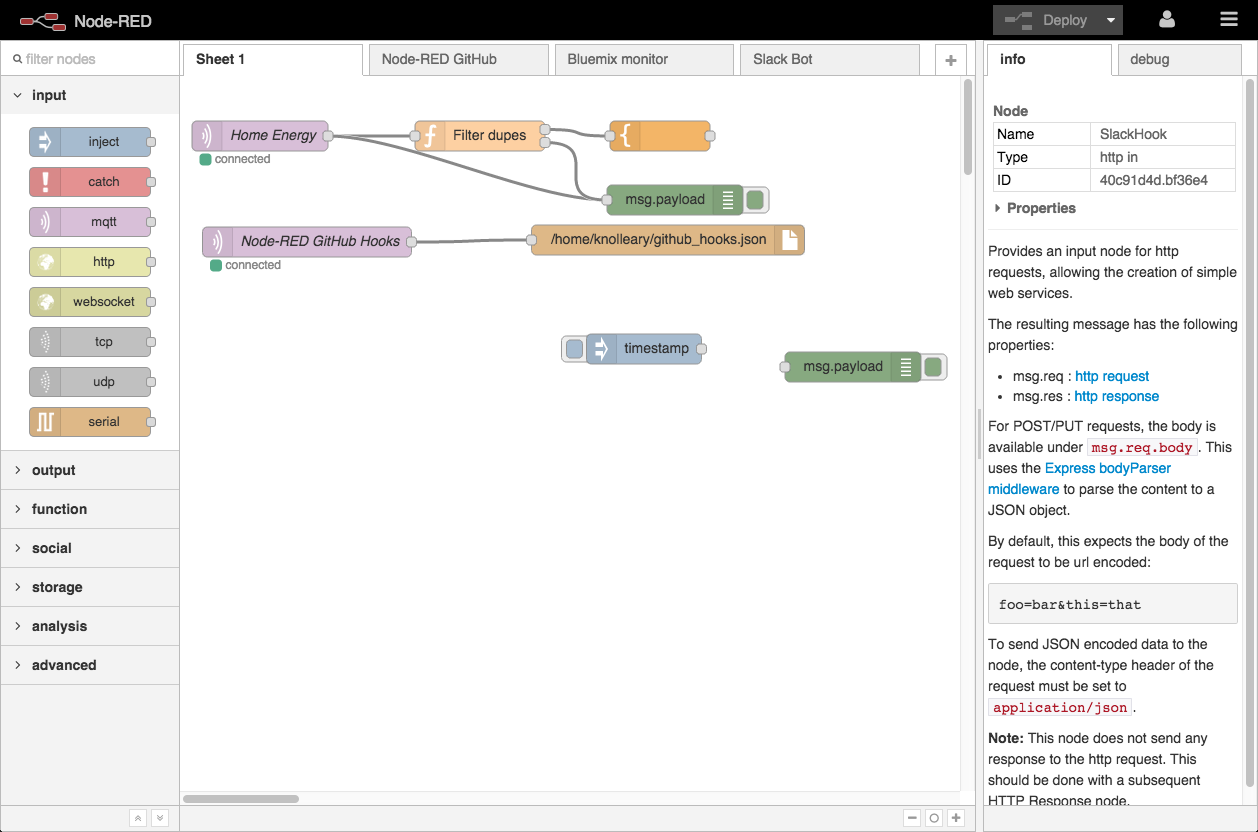
Research
Security News
Quasar RAT Disguised as an npm Package for Detecting Vulnerabilities in Ethereum Smart Contracts
Socket researchers uncover a malicious npm package posing as a tool for detecting vulnerabilities in Etherium smart contracts.
A visual tool for wiring the Internet of Things.

Check out http://nodered.org/docs/getting-started/ for full instructions on getting started.
sudo npm install -g node-rednode-redMore documentation can be found here.
For further help, or general discussion, please use the mailing list.
If you want to run the latest code from git, here's how to get started:
Install grunt, the build tool
npm install -g grunt-cli
Clone the code:
git clone git@github.com:node-red/node-red.git
cd node-red
Install the node-red dependencies
npm install
Build the code
grunt build
Run
node red.js
Before raising a pull-request, please read our contributing guide.
Node-RED is a creation of IBM Emerging Technology.
For more open-source projects from IBM, head over here.
Copyright 2013, 2015 IBM Corp. under the Apache 2.0 license.
FAQs
Low-code programming for event-driven applications
The npm package node-red receives a total of 15,456 weekly downloads. As such, node-red popularity was classified as popular.
We found that node-red demonstrated a healthy version release cadence and project activity because the last version was released less than a year ago. It has 0 open source maintainers collaborating on the project.
Did you know?

Socket for GitHub automatically highlights issues in each pull request and monitors the health of all your open source dependencies. Discover the contents of your packages and block harmful activity before you install or update your dependencies.

Research
Security News
Socket researchers uncover a malicious npm package posing as a tool for detecting vulnerabilities in Etherium smart contracts.

Security News
Research
A supply chain attack on Rspack's npm packages injected cryptomining malware, potentially impacting thousands of developers.

Research
Security News
Socket researchers discovered a malware campaign on npm delivering the Skuld infostealer via typosquatted packages, exposing sensitive data.